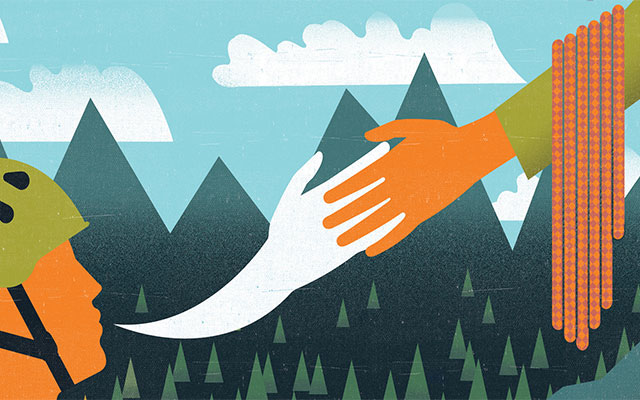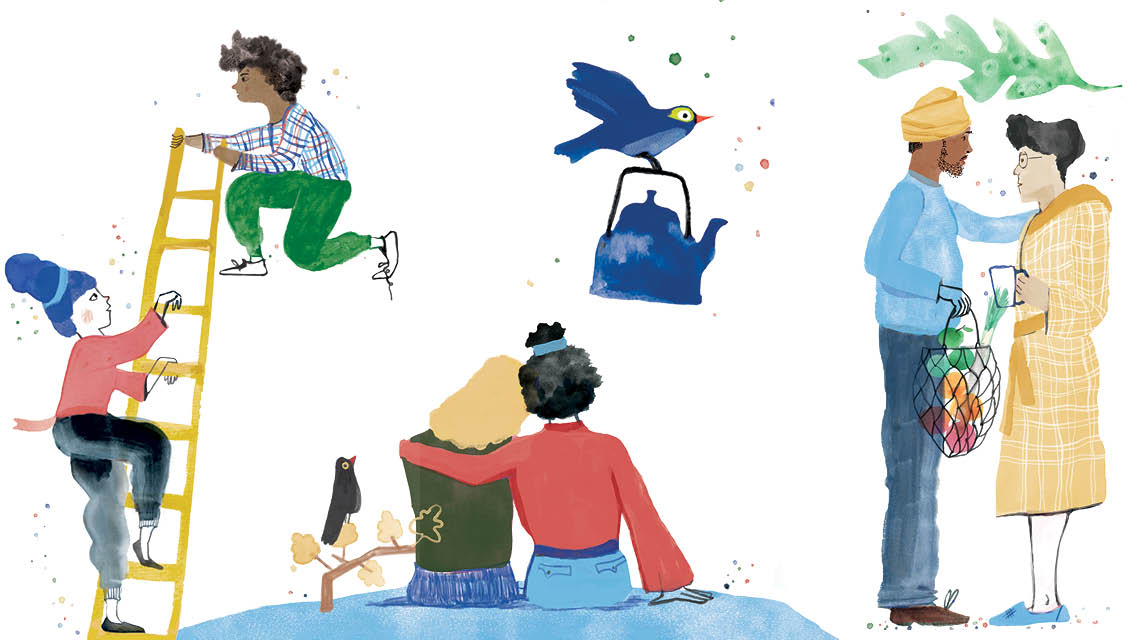Expert Source: Ellen Hendriksen, PhD, clinical assistant professor of psychiatry and behavioral sciences at Stanford University School of Medicine and the host of the Savvy Psychologist podcast on iTunes.
Asking for help isn’t always easy. Whether we view ourselves as a fix-it guy, supermom, take-charge CEO, or any other model of omnicompetence, we’re inclined to believe that we can and should be able to handle everything on our own.
But this mindset is almost guaranteed to generate stress, especially on those occasions when we really do need some assistance.
The nagging worries kick in: Am I being a burden? What if the person I ask for help says no? Will seeking support at work make me look lazy or put me at a competitive disadvantage?
We can lessen this anxiety simply by getting more skillful in seeking outside aid, says clinical psychologist Ellen Hendriksen, PhD. That starts with recognizing there’s no shame in asking for support. In fact, you may find that it improves, rather than strains, your connections with others.
Challenges to Overcome
- Fear of judgment. The main reason we don’t ask for help is that we assume we’ll be judged negatively, Hendriksen asserts. “When I find myself in the position of having to rely on someone else for help,” she explains, “I may fear that they will think I’m weak, stupid, incompetent, or broken.”
- Self-doubt. Hendriksen relates our fear of judgment to a tricky combination of pride and anxiety. The feeling that we “should” be able to do it all, she says, is often a front for worries that we may not be able to handle our obligations or our emotional load.
- Dread of being turned down. If the person you ask for assistance responds negatively, you may fear you have damaged the relationship by asking.
- The belief that no one will help. If we suffer from low self-esteem, we may feel it’s pointless to ask for help. “We may think, ‘No one’s going to go out of his or her way to help me, so what’s the point?’” Hendriksen says.
- Gender assumptions. Hendriksen notes that reluctance to seek help is often related to stereotypical, gender-based notions of what we “ought” to know how to do. “A woman may have no trouble asking for help changing her oil but hesitate when it comes to handling a parenting problem,” she says. “Likewise, a man may be willing to seek aid with childcare but feel he has to tough it out alone when he’s trying to fix the plumbing.”
- A cultural bias for self-sufficiency. “We’re a pull-yourself-up-by-your-bootstraps meritocracy,” says Hendriksen. “Sometimes it works to have your own vision and pursue it independently — but not always.” A too-stubborn sense of self-reliance can hold you back in a big way.
Strategies for Success
- Turn the tables. Ask yourself how you would feel if a friend asked for your help, says Hendriksen. “Chances are you’d say, ‘Yes, of course!’ You’d be very willing. Likely, your friend would feel the same.”
- Accept that people like to help. Believe it or not, we improve our relationships when we ask for help directly. It allows others to feel competent and valuable, and letting our guard down increases our own feelings of trust. “If you ask for help,” says Hendriksen, “you get the help, of course, but also the relief of realizing that you are safe, you’re not being judged, and most people really like to help because it makes them feel great.”
- Practice. If you have a hard time asking for help, Hendriksen suggests you rehearse with small requests where there’s little or nothing at stake. “You can ask somebody in the coffee shop to watch your stuff while you go get a refill, or ask the grocery-store clerk to point you toward the lemongrass,” she says. “Nine times out of 10, you’ll get that positive-feedback message that people love to help.”
- Recognize your limits. Hendriksen points out that there’s nothing wrong with self-reliance: It can build self-esteem, connect you with your values, and help you accomplish your goals. The point isn’t to give up that trait, she says, but rather to become more discerning about it. When a task is clearly beyond your current capacities, just know that it’s time to shift into a different mode.
- Depersonalize the issue. It’s easy to think of a problem for which you’re seeking help as “your” problem. Hendriksen suggests making it less emotionally volatile by seeing it as “this” problem instead. “If you see it in the third person, then you can see yourself teaming up with a helper to solve it, rather than as a clueless person begging for assistance.”
- Take “no” in stride. When we ask someone for help and he or she says no — especially without giving a specific reason — Hendriksen advises we resist spinning this into a negative story. “It can be easy to think that the person is angry at you, disrespects you, or doesn’t care,” she says, “but that’s unlikely. What’s more probable is that the person is busy, feeling overwhelmed, or feeling that he or she just doesn’t have the skill or energy to be helpful.”
- Reframe. If you fear that asking for help makes you seem needy, Hendriksen suggests reframing the gesture in your mind. “You can think of it as getting expert advice or consulting with a specialist, which we do all the time when we go to a doctor or a car mechanic,” she says. Then, instead of feeling like someone who’s needy, you can feel like someone who is well-connected and has resources — and isn’t afraid to use them.
This article originally appeared as “Need a Hand?” in the May 2015 issue of Experience Life.




This Post Has 0 Comments